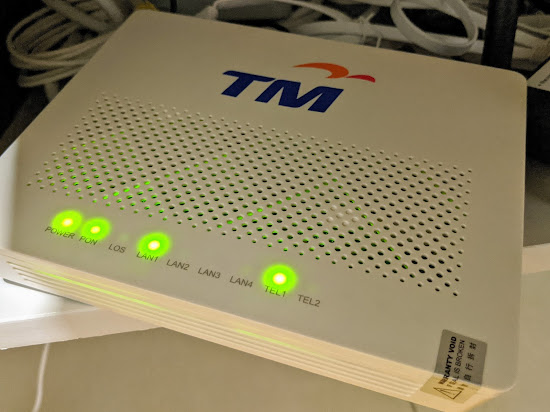An Open-Letter To Parents After The 2016 UPSR Results
Dear parents,
As a government school teacher, I know that your children are worth more than a mere letter grade on a flimsy piece of paper. Like any kind of measurement tool, there are limitations to the generalizability of our exam results. The truth is our paper tests are only able to measure a very narrow aspect of your child’s overall intelligence. Usually, what is measured is their verbal linguistic intelligence (the ability to express oneself through language). There are plenty of other intelligences that are not measured or addressed by the UPSR.
Let’s not forget the influence of test-taking skills, like the consideration for what the examiner is looking for & the consideration of all 4 options of a multiple-choice before selecting the best one. Young children and test-takers with low language proficiency tend to lack these skills. This is why schools drill your children with model exam questions. Drilling is a tried and true method for the implicit acquisition and operational knowledge of test-taking skills.
Test-taking skills greatly modulate the results of an exam. Ever wondered why we have the curious phenomena of straight A students who are incapable of forming grammatical sentences in English or performing basic arithmetic in real-life situations? They have been perfectly trained to apply this knowledge in exam conditions, which does not naturally translate into being able to apply the same knowledge in real-life.
If exams are such poor measures of a person’s capabilities, is there a place for exams in our world?
Yes. Every student need “some” knowledge of every subject taught in school. Exams are a quick & efficient way to measure that knowledge (especially if we have a class of 40 students & only 1 teacher). How much knowledge students should have depends on their individual goals. Not everyone needs an A+ in moral studies (although it is desirable).
Is the new format better than the old one? I was told that this year’s UPSR is no longer norm-referenced. This is great for transparency as norm-referencing aka the bell curve tends to significantly inflate exam results. Previously, one year’s marks for an A can be different from another, depending on the overall performance of the different cohorts. This might be the first time we’ve seen “real” uninflated UPSR results.
However, I have 2 concerns over how higher-order thinking skills (HOTS) are measured. As we are attempting to measure HOTS through written language, we might be increasing the linguistic complexity of the tests and making them more abstract (hypothetical). This might further alienate students who are not verbal linguistically inclined, but are able to demonstrate similar understandings non-linguistically, for example, through visuals or hands-on experiments. Additionally, the increased linguistic complexity of the tests might create a language barrier for students with limited proficiency in BM who might be able to perform more favorably in their first language.
Knowing LPM, they’ve done their best to make as many accommodations as possible with regards to the above. Also, they do perform extensive piloting on every one of their exam questions. Unless we change the way that we measure the abilities of our students (like what PBS has attempted to do), we’re bound to the limitations of paper-based tests.
The good news is UPSR results will improve next year. I don’t need a bomoh to look into his terowong to tell me that. Schools will adjust their drilling methods to incorporate HOTS test-taking skills (because they are evaluated & rewarded based on exam results). The reason we will see improvements is not because our students have improved mastery of the subject matter. NO. It’ll likely be because they have improved test-taking skills compared to their peers from this year.
Personally, I think that primary school is a time for our children to fall in love with learning. When they experience success in small ways and find learning pleasurable, they naturally become life-long learners and will likely perform better in all aspect. However, our society's fixation on As has made the pursuit of A-piness the primary purpose of learning which, in turn, puts stress on our children & sucks all the pleasure from learning. You & me, we’ve experienced it firsthand (unless you’re atas or kaya).
Perhaps we should make UPSR exam metrics an official secret, jail anyone who dares to leak them, & raid newspapers that publish those metrics because they are perpetuating the myth that, at 12 years old, your life is over if you fail to get As in UPSR.
As Malaysians, we should be more focused on the 2.16% at the very bottom (failing all subjects!) instead of the 1.11% at the very top (with all As). We should all take up that cause as THIS IS A NATIONAL CONCERN! Our nation’s future is at stake. It is well known that we have severe brain drain hemorrhaging & we need more brains to fill in the gaps. This is something worth donning red shirts & beating ourselves over.
Our children are more than the sum of their exam results. Yet for a majority of families in Malaysia who live our lives struggling with an ever tightening economy and witness dwindling scholarship funds, we instinctively know that the amount of As our children get will increasingly determine their future trajectory. Thus, we are forced to squeeze our children through the education grinder in order for them to come out of the machinery as perfectly A-shaped products for quality inspection by scholarship boards, colleges, MARAs, SBPs, employers, family members, & gossip aunties.
Believe it or not, our education philosophy espouses a desire to develop every student holistically, with emphasis on every JERIS (Jasmani Emosi Rohani Intelek Sosial). I hope that, as parents, we will not default to a knee-jerk reaction with the UPSR results. Instead, let this be a learning moment for us as we deepen our understanding of the education system, our testing system, & what is actually good for the developmental needs of our children.





